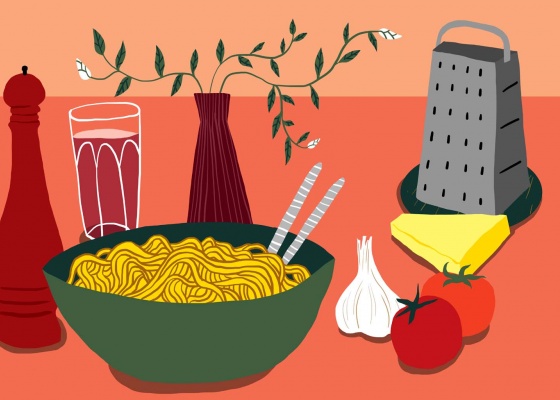Most of us can get all the vitamins and minerals we need by eating a healthy, balanced diet. If you think that you are not getting the right amount of vitamins, consider eating foods which are high in the missing vitamin. Some of us choose to take supplements but you might not realise that taking a high dosage or taking them for too long, can do more harm than good, especially if you’re already taking prescription medication.
If you do take supplements, it’s always good to ensure that you take only the recommended daily allowance (RDA) and discuss with your GP why you're taking them and why they're needed.
Below are some of the most common vitamins we need and examples of where we can get them.
-
Calcium is essential for bone health. Dairy foods are rich in calcium, as well as dried fruit e.g. figs, nuts such as almonds, leafy green vegetables, red kidney beans, sesame seeds, tahini and tofu.
-
Omega 3 fatty acid is found in oily fish. Plant sources of omega 3 include walnuts, flax (linseed), hemp seeds, chia seeds and soya beans. Oils such as hemp, rapeseed and flaxseed oil also provide essential omega 3 fats.
-
Vitamin D. Our body makes most of our vitamin D in reaction to sunlight on our skin. It's also found in a small number of foods including oily fish, eggs, margarine, yoghurt and fortified breakfast cereals. However, people over the age of 65 are at risk of not getting enough vitamin D, especially when we’re not exposed to much sun. The British Dietetic Association recommends that over-65s take a supplement of vitamin D of 10 micrograms per day and that we try to get out in the sun for 10-15 minutes a day without sunscreen. While some sunlight is beneficial, remember to cover up or protect your skin if you’re out in the sun for long periods.
-
Iodine. The major sources of iodine in our diet are dairy products and fish. The iodine content of plant foods depends on the iodine content of the soil, which is variable. Foods grown closer to the ocean tend to be higher in iodine. Guidance is not to consume sea vegetables more than once a week. An excess of iodine is also unhealthy so if you are taking a supplement, discuss this with a dietitian or health care professional.
-
Vitamin B12. Most people get vitamin B12 by eating animal products, such as eggs and dairy products. If you use dairy alternatives like soya milk, look for ones with added B12.
-
Iron. You should be able to get all the iron you need from your daily diet as it is found in red meat, pulses and beans, eggs, wholegrain products, nuts and seeds, green leafy vegetables, dried fruit and fortified cereals. Eating plenty of fruits and vegetables rich in vitamin C helps iron absorption e.g. citrus fruits, strawberries, green leafy vegetables and peppers.
-
Zinc. Phytates found in plant foods such as wholegrains and beans reduce zinc absorption, so it’s important to eat good sources of zinc-containing foods. This includes fermented soya such as tempeh and miso; beans (soak dried beans then rinse before cooking to increase zinc absorption); wholegrains; nuts; seeds and some fortified breakfast cereals.
-
Selenium is in grains, seeds and nuts. Just two brazil nuts a day will provide you with your daily requirement of selenium.
For more information on vitamins take a look at the BDA or the Vegetarian Society

